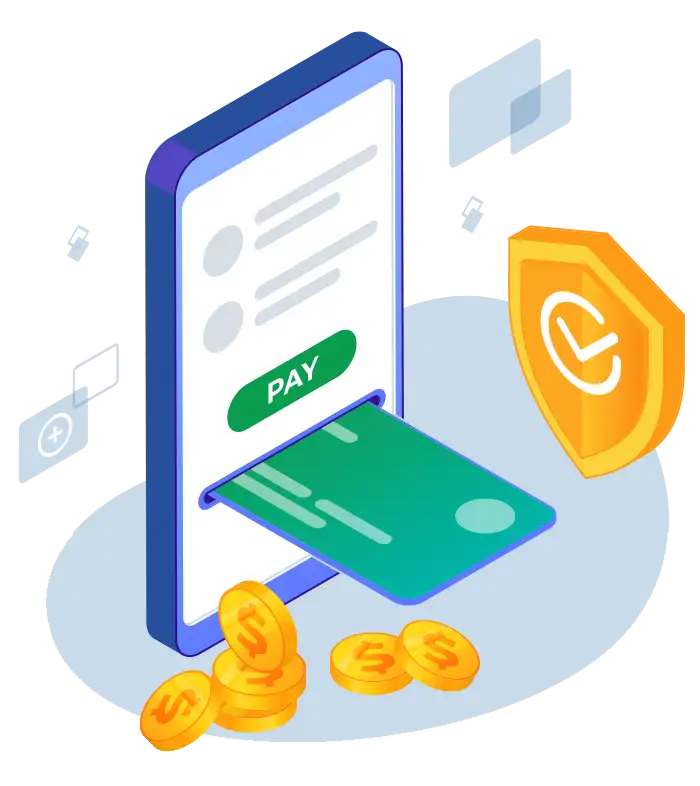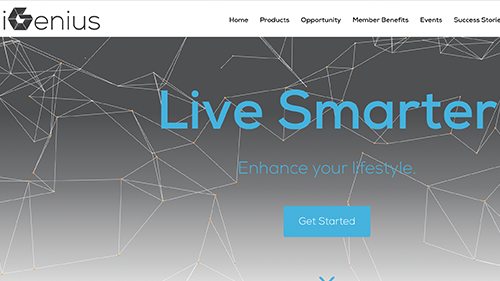Easy Pay Direct is the #1 source for credit card processing in the USA & Canada.
Worry less about payment issues and take advantage of chargeback management, recurring billing, transaction routing, and more… lower your decline rates and increase revenue by filling out our quick form.
Millions of merchant accounts were shut down last year by our competitors…
We have a solution so that you can worry less about payment issues, have stable merchant accounts, and make more money online.
Accept payments Today or read more below to find out why the top Entrepreneurs trust Easy Pay Direct in the USA.


As a business accepting credit cards online, you need a truly reliable merchant account.
Last year, Payment Aggregators, including Stripe, closed down millions of merchant accounts, and the reason will shock you…
Simply put… It’s how their business model works!
They have one merchant account, which they let millions of merchants use. In doing so, they balance the risk between solid ethical business owners with entrepreneurs who would commit fraud, launder money, sell a poor-quality product, or close their doors before a consumer asks for a refund.
This allows companies like Stripe to set you up quickly, but it also allows them to shut you down even quicker.
The problem is that they don’t know anything about you when they set you up. They don’t know who you are, what you sell, or how you sell it.
If they set you up and anything unusual happens, such as a spike in chargebacks, the likelihood of them closing your account is HIGH.
Even worse, if one of your competitors does anything to trigger a flag in their system, they look at the entire industry. And through no fault of your own, a competitor’s misstep could mean a closed account for you.
So, how does Easy Pay Direct differ? And how do we keep our client’s merchant accounts stable?
The KEY component is thorough underwriting.
Our specialists underwrite your account so that we understand your business and marketing model. This allows us to match you with a back-end bank that works with your vertical.
Which greatly lowers the chance of you ever having an issue.
On top of that, when you sign up with us, you’ll have one dedicated point of contact, access to our fraud protection services, recurring billing, mobile payments, hosted checkout, and integration to over 250 shopping carts.
We’ll also work with you to optimize your payments for the lifetime of your account.
Lowering your decline rates so that you can increase revenue, monitoring your chargeback ratios, and helping to mitigate them, plus much more.

Ask Our Clients, Partners, Or Anyone Selling Anything Online…

Grant Cardone

Tony Robbins

Frank Kern

Dean Graziosi

Amy Porterfield

Perry Belcher

Roland Frasier

Ryan Deiss

Wes Watson

Safe Life Defense

iGenius

Closers.io
ONLINE CREDIT CARD PROCESSING INFORMATION
ONLINE CREDIT CARD PROCESSING
Online shopping was growing by leaps and bounds in the Before Times, before COVID-19 hit.
The pandemic sped up a growing trend. Small businesses need to accept credit card payments online, and that’s where online credit card processing comes in.
The first step involves finding the right credit card payment processing provider for your needs.
HOW DO YOU TAKE CREDIT CARD PAYMENTS?
How you take credit card payments from someone depends on the various credit card transactions.
Online credit card payments differ from in-person payments. For in-person transactions at brick-and-mortar retailers, you need a payment processor, a Point of Sale (POS) system, and a card reader.
To accept payments online, you will need a payment gateway.
WHAT IS A PAYMENT GATEWAY?
A payment gateway allows the customer’s credit card information to move securely from the business website through the credit card processing network.
The payment gateway then returns the authorization response to the website from the acquiring bank or credit card company. If the transaction is authorized, the order moves forward.
Basically, the payment gateway establishes the legitimacy of credit card transactions.
For online transactions, the payment gateway connects the customer to the merchant via cloud-based software. For in-person transactions, the payment gateway is the software associated with the mobile card reader or the Point of Sale (POS) system when the client uses their card to make a payment.
HOW DO PAYMENT PROCESSORS WORK?
Get Payment Processing Here. Payment processors, also known as merchant services, work by processing credit and debit card transactions. The payment processor connects all the players in the endeavor, ranging from the cardholder to the merchant to the merchant account provider.
There are three facets of credit card processing:
- Authorization – The issuing bank accepts or declines the transaction after the processor sends the transaction to the card association.
- Settlement – Merchants send authorized transactions to the processor, which sends them on to the issuing bank. The financial institution charges the cardholder’s account.
- Funding – The merchant account removes the applicable fees from the funds and sends the balance to the merchant’s business bank account.
HOW DO I PROCESS A VIRTUAL CREDIT CARD?
Used to deter fraud, a virtual credit card is a randomly generated number connected to the consumer’s physical credit card account.
There is always a greater risk of fraud in card-not-present transactions, which is true of all online payments.
HOW CAN I ACCEPT CREDIT CARD PAYMENTS WITHOUT A MACHINE?
There are two types of credit card payments: card-not-present and card-present transactions. Card-not-present transactions are recorded through a payment gateway, and card-present transactions use a POS system or credit card terminal.
Small businesses can also use mobile card readers to accept credit card payments. Contactless payments take place with a tap against the credit card reader.
HOW DOES A MERCHANT ACCOUNT WORK?
A merchant account is a type of bank account that allows businesses to accept credit card payments and debit cards.
It is necessary for both online payments and in-person payments.
After a customer pays for a product or service via credit card, the processor deposits the funds into a merchant account. From there, the merchant account provider transfers the funds to the business bank account, less any applicable fees.
HOW DO I GET A MERCHANT ACCOUNT?
Before obtaining a merchant account, those running online businesses must do their homework.
First, decide which credit cards your online store will accept. Transaction fees are higher for some cards than others.
What is your transaction volume? Some merchant account providers may offer better rates for higher-volume enterprises.
Determine the percentage of your online payments, mobile payments, and in-person payments. You want a credit card processor offering the most competitive rates for the payments used most often by your customers.
Make sure your online store payment provider and your website integrate well. If you have a brick-and-mortar business, find out what type of equipment is necessary for you to buy for compatibility with your POS system.
Once you have done your research, you are ready to open a merchant services account.
WHAT DOES MERCHANT SERVICES INCLUDE?
The term merchant services refers to the various services and equipment businesses need for accepting payments from customers and processing such payments.
Typical merchant services include:
- Payment processing
- PCI compliance
- POS system
Merchant services include software and hardware, such as a mobile card reader or virtual terminal.
There is no one-size-fits-all in merchant services. Every business, whether online, brick and mortar, or both, has its unique needs that the merchant services provider must accommodate.
Keep in mind that if you operate a high-risk business, you will pay more for merchant services.
WHAT IS THE DIFFERENCE BETWEEN MERCHANT ACCOUNT PROVIDERS AND PAYMENT SERVICE PROVIDERS?
Merchant account providers assign a separate account, along with a merchant identification number, for every business client.
Payment service providers (PSPs) combine multiple businesses under one account and merchant identification number.
While a merchant account provider offers clients a more customizable solution, it can take longer for a business to receive approval. Limits on transaction size and processing volume are more flexible.
A PSP handles every aspect of online credit card payments, including PCI compliance. The approval process usually takes just a few days. This is often the most affordable choice for a small business.
However, there is a downside. There are strict limits on transaction size and processing volume. Because the PSP takes more risks with multiple businesses, it is more likely to close or freeze an account or put it on hold. The small business may suddenly find it cannot accept payments.
Those businesses signing on with a merchant account provider run little risk of finding their account closed, frozen, or on hold. There is little concern over the abrupt inability to accept credit cards.
WHAT KIND OF PAYMENT PROCESSING OPTIONS DOES YOUR SMALL BUSINESS NEED?
The best payment processing options for a small business depend upon its needs.
Before considering credit card processing companies, determine your specific requirements. For instance, do you need a payment processor for online payments only, or in-person payments as well?
Do you accept mobile payments? Or payments over the phone? How you accept payments for your products or services determines the right processing option for your business.
WHAT ARE THE PRICING STRUCTURES FOR CREDIT CARD PAYMENT PROCESSING?
Credit card processing pricing depends on the payment provider and the individual business. The best type of pricing structure for a small business depends on several criteria, including:
- Number of monthly transactions
- Average amount per transaction
- The total sum of monthly transactions
-
WHAT ARE ONLINE CREDIT CARD PROCESSING FEES?
The pricing structure to process credit card payments is relatively straightforward.
Online card processing fees may include:
- Setup fees – These initial fees to set up the account may or may not include the hardware and equipment necessary to accept online payments.
- Monthly fees – Some processors charge monthly fees, while others do not. Some companies charge monthly minimums in processing fees based on the required number of charges. If the business does not submit the minimum number of charges in a month, it must pay the difference.
- Monthly subscription fee – Companies may charge this monthly minimum fee for recurrent billing or for collecting funds via their app.
- Transaction fees – While actual fees depend on the card type, these fees usually range between 1.5% to 3.5% per transaction. American Express tends toward the higher end, which is one reason fewer businesses accept Amex.
-
There are incidental fees charged for certain circumstances, such as chargebacks.
WHAT ARE INTERCHANGE FEES?
Keep in mind that small businesses must also pay interchange fees. These are fees paid between banks for accepting credit card transactions.
The credit card companies set interchange fees, so all payment processors pay the same amount. Small businesses must pay both interchange fees to the credit card companies and transaction fees to the payment processor.
WHAT IS INTERCHANGE-PLUS PRICING?
Interchange-plus pricing is a model used by a credit card processor that determines the merchant’s per-transaction cost.
It comprises the credit card network’s interchange fee and the credit card processing company’s markup.
Since the interchange fee varies by card, costs depend on the cards customers use. Small businesses dealing with lots of premium cards should expect a higher interchange fee.
Interchange plus pricing is a transparent process. On average, the rate for business owners is 2.2%.
HOW DOES INTERCHANGE PLUS PRICING COMPARE TO OTHER TYPES OF PRICING?
Interchange plus pricing compares well with other types of pricing. Other types of credit card processing pricing include:
- Flat rate pricing – Also known as fixed-rate pricing, this type charges one fee for all transactions, whether the customers pay with credit cards or debit cards.
- Tiered pricing – Credit card companies base this model on the cards accepted. Cards without reward programs are less expensive than those with them. This pricing is more expensive than interchange-plus pricing. However, it is usually cheaper than flat-rate pricing.
- Monthly fee – A payment provider may charge a monthly subscription fee rather than a percentage of sales. Fixed transaction fees, whether for card not present or in-person transactions, will apply.
-
WHY IS PCI COMPLIANCE SO CRUCIAL?
Accepting credit cards is absolutely necessary for online businesses. The downside is the risk of fraud is much higher in card-not-present transactions.
Unfortunately, criminals are constantly trying to hack into and breach business data. If they are successful, your customers’ credit card and personal information are at risk and your business may not survive. That’s where PCI compliance comes in.
The Payment Card Industry (PCI) Data Security Standard helps to prevent such breaches and reduce fraud. There are currently 12 standard requirements for PCI compliance. These standards focus on network security and maintenance, as well as protecting all cardholder data.
Along with business losses, failure to remain PCI compliant can mean hefty fees and fines imposed by credit card companies and their member banks.
The best way to ensure your business is PCI compliant is by choosing a credit card processing company that will take your business through the entire process.
All recurring payments and credit card information stored in the Easy Pay Direct system are secure and compliant. This also means that all merchants using the system are also PCI compliant.
ALTERNATIVE PAYMENT METHODS
While alternative payment methods, such as Google Pay, Square Payments, and other payment options are increasing their share of online transactions, credit card payments are still the way the overwhelming majority of customers pay for goods and services.
WHAT SHOULD I LOOK FOR IN A CREDIT CARD PROCESSING COMPANY?
Once you’ve done your homework on credit card processing companies and narrowed down your needs, here are some additional items to investigate before making your decision.
Watch out for hidden fees. Avoid companies charging early termination fees, in case you find out you are not happy with your choices. Canceling a contract early can cost your small business a considerable amount of money.
Look for a company offering excellent customer service. You never know when issues may come up with your payment system. You need help right away.
HOW EASY PAY DIRECT CAN HELP
Easy Pay Direct provides merchant accounts for high-risk and other businesses. Our pricing is transparent, with no hidden fees. There are no early termination fees.
All of our merchant services are user-friendly. Our customer service is second to none.
At Easy Pay Direct, you can accept credit cards from anywhere. Set up recurring billing and automate!
Once you complete your application and we approve it, you can accept credit card payments within a few business days.
Here’s our guarantee: If you don’t love the system for any reason within 30 days of your account setup, Easy Pay Direct will refund your setup fee AND your first month’s Easy Price.
Over 60,000 businesses have worked with Easy Pay Direct. For more information, please contact us at 800-805-4949 or get started here.
What Are Payment Service Providers? – NerdWallet
Interchange-Plus Pricing: What You Need To Know – ValuePenguin



I WANT TO ACCEPT PAYMENTS NOW

